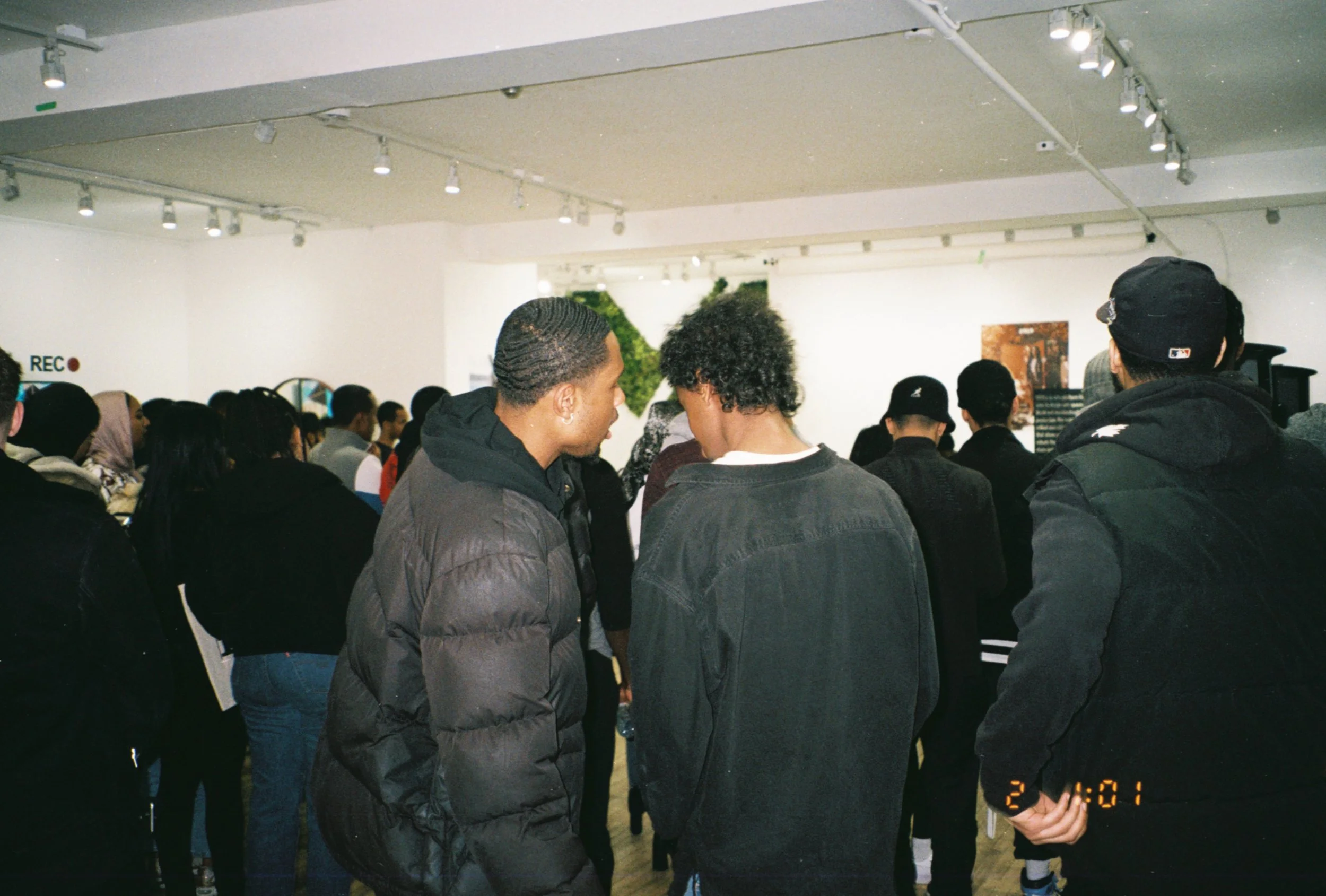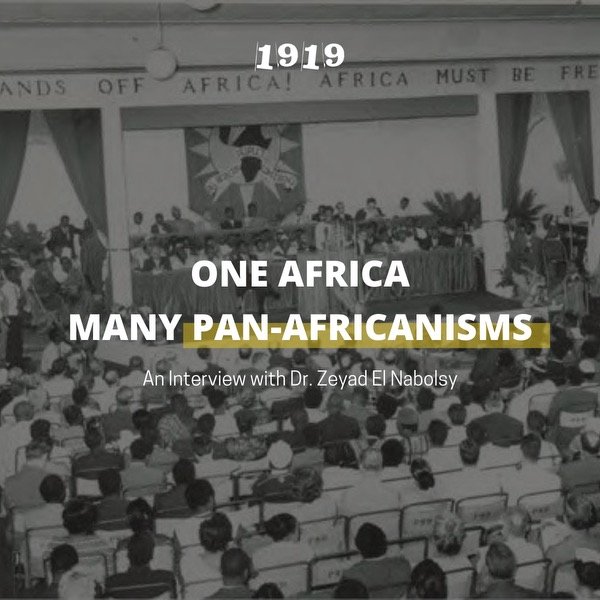One Africa, Many Pan-Africanisms: An Interview with Doctor Zeyad El Nabolsy
Pan-Africanism is one of the central organising philosophies at 1919. This summer, we’re exploring perspectives of Pan-Africanism across the continent with a variety of thinkers on both our radio and digital mag. Despite their differences, from the time of independence in the ‘60s, African revolutionary leaders have always called for a unified political and economic continent. In this interview with Doctor Zeyad El Nabolsy (York University), we talk through the historical trajectory of this philosophy, from the continent to the diaspora.
1919: 1919 is a pivotal moment in the movement for Pan-Africanism, which was when the first Pan-African Congress occurred. Can you start us off by describing some of the initial developments in and around this time period?
Nabolsy: So the first Pan-African Congress in Paris happened in 1919, with W.E.B Du Bois among other leading intellectuals present. These Pan-African Congresses happen at intervals, with the most famous one being the fifth Pan-African Congress, in Manchester in 1945. By 1945, there were people like Kwame Nkrumah in attendance, who would later become the leader of Ghana upon independence.
But to take the story back a little bit, a very significant event that took place from the standpoint of the development of Pan-Africanism happened in 1917 with the Russian Revolution. Which was an anti-colonial and anti-imperialist revolution. After 1917, the Communist International (Comintern) was formed, which sought to organize all of these different emancipatory struggles across the world. The Cominternwas founded in 1919, and served as a venue for all sorts of internal debates. By the 4th Congress of the Comintern, it took an early Pan-Africanist line, influenced in part by the Jamaican poet Claude McKayand Surinamese writer Otto E. Huiswoud Otto Poisewood
Another influential development during this time period was the founding of the African Times and Orient Review in 1912 by Dusé Mohamed Ali, who was an Egyptian-Sudanese writer and journalist. He played a very important role in providing an English language platform for Africa-based nationalists, and travelled extensively between Britain, West Africa, and North Africa, eventually living out his life in Nigeria.
1919: Pan-Africanism evolved into different forms as various African leaders adopted the philosophy into their movement building and liberation struggles into the middle of the 20th century. How did leaders like Kwame Nkrumah, Julius Nyerere and Amilcar Cabral use Pan- Africanism as a way to free themselves during the colonial struggle?
Nabolsy: I mean, the first thing to say is that there were [always] different varieties of Pan-Africanism. So the people you’ve mentioned, specifically Nkrumah and Nyerere, had very different conceptions of Pan-Africanism. Nkrumah was very much bent on the idea that Africans needed a federated state as soon as possible. Whereas Nyerere thought that this was not really workable in practice and instead, what Africans should try to do is build up regional blocks.
So you had, for example, Nyerere thinking of the East African common community with Uganda, Tanzania and Kenya. But that had problems because it was dominated by Kenya, which (because it was one of the few settler colonies in East Africa) had a headstart in terms of its economic development. So they had all these different visions of [what Pan-Africanism would look like] and while they all subscribed to it politically, there was some discrepancy. Now, what’s especially interesting is that with respect to their views on socialism… They differed quite a bit.
1919: That’s interesting. So, in this period, there were different competing philosophies that sought to point a way forward for the African masses, such as African Socialism and Marxism-Leninism.. How were these leaders synthesising those ideas?
Nabolsy: Let’s take Nyerere for example. He championed what he described as African socialism and used the Swahili word ‘ujamaa’ which is familyhood, in a political sense. And the idea here is that it was actually [a form of] socialism, but not as a foreign doctrine, rather it is implicit in what Nyerere described as traditional forms of life.
Moreover, he wanted to say that actually there was no need for a kind of revolutionary orientation because African societies were already proto-socialist. In his view, there were no ‘classes’ in African societies. So, in that sense, while he accepted socialism, he was much more influenced by democratic social movements, especially the Fabian movement in Britain, than he ever was by Marxism.
1919: And Nkrumah?
Nabolsy: Nkrumah always had a more Marxist-Leninist orientation, but was never really explicit. He didn't make a clear break with African socialism until 1966. Then he wrote this very interesting article in 1967 called ‘African socialism revisited’ where he says: “Look, some of the anthropological claims that African socialists have made about African societies having no class stratification are not correct.” [From here] Nkrumah adopts ideas similar to the necessity of a dictatorship of either the proletariat or the popular classes and ends up taking a much more Marxist-Leninist line.
1919: You mentioned that Bissau-Guinean and Cape Verdean leader Amilcar Cabaral is an interesting case study. Can you speak more to that?
Nabolsy: Cabral is an interesting case because with him Pan-Africanism becomes a purely political question, he tries to strip it of some of its cultural elements. [He says] “Look, there are massively different cultures on the African continent, such that you can’t really speak of one unified African culture.” And he says “Pan-Africanism has to be something related to the political content that we take up.” So in his view, Pan-Africanism is not just solidarity between Africans. If there are two African states and one is trying to break with economic dependency and another isn’t, then there is no basis for solidarity there. Instead, the solidarity should be around common goals and commitment to assisting each other to achieve those goals. We’re not just going to be in solidarity with each other on the basis of skin colour or something like that.
1919: Despite all of these differences we’ve mentioned, there are commonalities between these thinkers and their understanding of philosophy …
Nabolsy: Of course, all three people we’ve talked about understood something fundamental: that African states on their own are unable to bargain effectively with the outside world. Especially for the capital they need to launch their development projects. So a key part of Pan-Africanism, for all of them, was to have a collective block - almost like a union negotiation. Importantly too, they needed to coordinate their development projects.
On the eve of independence, the African domestic market was too unprofitable to allow for industrialization. So if you had a tire factory, say, in Tanzania, the domestic market was too small. You need to be able to sell whatever you are manufacturing in neighbouring countries and you need a coordinated plan with those countries that will make those industries viable so that Africans can move away from exporting only agricultural goods.
1919: Pan-Africanism as a philosophy crosses geographic boundaries and soon becomes inclusive of the liberation struggles of people outside of Africa. What are your thoughts on that?
Nabolsy: It’s interesting, because you do see a kind of shift. Pan-Africanism really became global in scope with people like Marcus Garvey, who was tremendously influential. Garvey was born in 1887 and died in 1940. And he created this global organization, the Universal Negro Improvement Association (UNIA), which had presence across Africa in different port cities. And the UNIA took interest in global developments pertaining to colonialism as far as China and India and so on. It was really because of this expansive nature that it enabled people to come into contact with one another.
Later, we see Pan-Africanism in its most politically institutionalised form. So, after the wave of independence on the African continent in the 1960s, Pan-Africanism turned to problems across the world. [Let’s take Palestine as a case study], which is important given the ongoing genocide in Gaza. In 1967 Israel launched a surprise attack on Egypt, Jordan, and Syria and occupied the West Bank, Gaza, Siniai, and the Gaza Strip. In the late 1960s and mid 1970s , almost all African states break ties with Israel. So there has always been an understanding, I think, that these struggles are connected. In a material sense too, Israel was providing arms to the settlers in Rhodesia, and providing support to the Portuguese colonisers in Mozambique, Angola, and Cape Verde and Guinea-Bissau. There is also the South-African/Israeli connection which was very strong and tied to the development of nuclear weapons. So there was always that understanding that African peoples and their struggles against their oppressors have to connect with peoples facing the same struggles elsewhere, because there were all of these material connections.
1919: How do you see the relevance of Pan-Africanism as a philosophy and movement today to scholars, organisers, and people interested in the idea of African unity?
Nabolsy: I mean it's quite relevant because it is a useful guide for understanding some of the developments taking place on the African continent today. So, having that intellectual context in mind might help you understand some of the motivations of the actors involved, and some of their aspirations as well.
I think it’s important to study the history of that movement in order to understand what worked and what didn't work. What was easily captured by forces that had opposing interests and what couldn't be captured by forces having opposing interests. For instance, I think you could see the example of a purely cultural conception of Pan-Africanism, the idea that Africans have one common culture - as something that has been easily captured and commercialised. Whereas I think that the political demand for control over resources tied to the creation of a sectorally integrated economy has not been easily captured by opposing forces . The emphasis on the independence and dignity of the African voice on the international stage, which you see for example in South Africa’s stance on the genocide in Gaza, is I think is a very clear example of what is living today in Pan-Africanism. I think that these elements are really important. And they're still important today and I think they'll be important for the foreseeable future.
You can listen to our Pan-Africanism Series at 1919 radio here.
1919 Reading Notes




